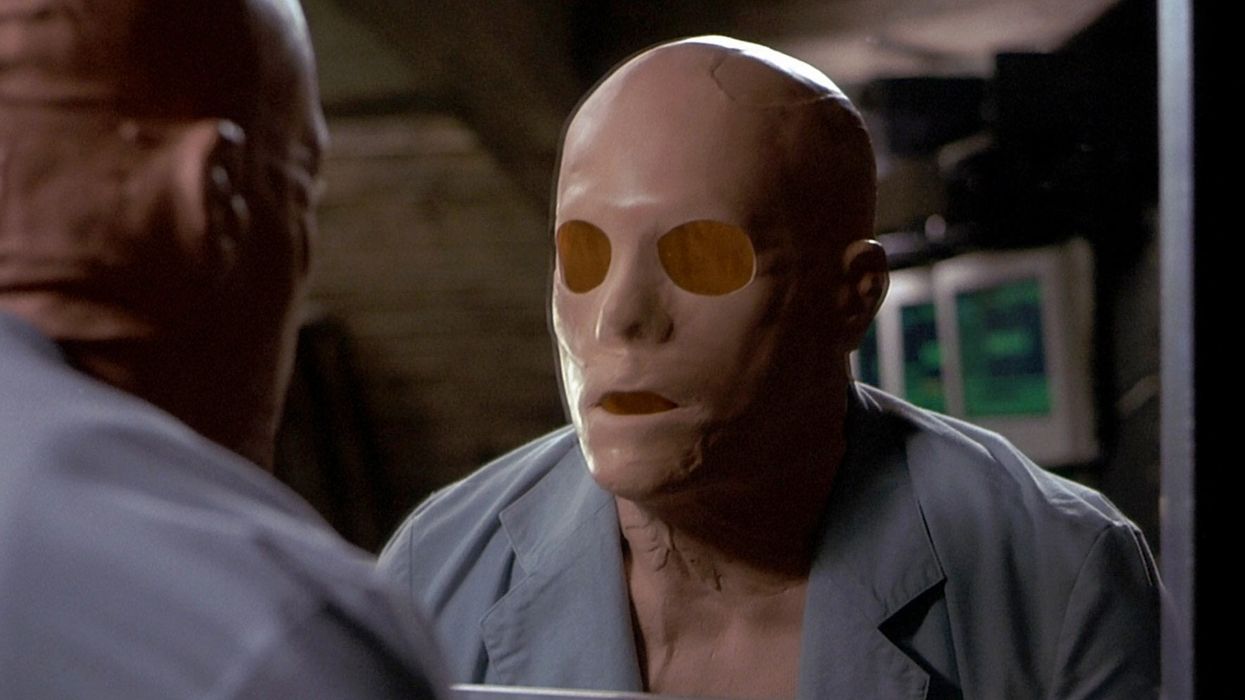The One Way the Streaming Fight in Hollywood Can End
Transparency is the key for the industry moving forward.

'Hollow Man'
We're in the summer of strikes, and one of the things being talked about at every turn is the idea of residuals--and how there is no transparency when it comes to who's watching what.
Well, I think streaming transparency is one of the most important roadblocks to rebuilding Hollywood after the pandemic.
Streaming companies have refused to play by the network rules of paying based on who watches. Is there a fair an equitable way forward?
Let's unpack that today.
How Did Hollywood Used to Work?
 'Once Upon a Time in Hollywood'
'Once Upon a Time in Hollywood'Credit: Sony Pictures
In the past, we had a third-party company called Nielsen that tracked everything. They helped advertisers decide how much they should spend to promote different shows, and they told you who was watching what every week.
You didn't get rich selling or acting in the first season of a TV show. You made your money through longevity. If a show did well and you got viewers, your paychecks would increase are more seasons were ordered.
Then those shows would be sold into syndication when they hit 100 episodes, and you would make more money.
If the show wasn't your idea or you weren't the star and you were just a staffer on it, you could still make good money through reruns and licensing sales to different networks.
That's not the case now.
How do Streamers Work Now?

'Wednesday'
Credit: Netflix
The climate among streamers is very different now than it was with networks. Streamers have been able to guard their numbers from the public.
Only Netflix has a site where you can track who is watching what. But those numbers come from them, and we cannot be sure if they are real.
There have been discrepancies between outside companies that try to track streaming, like Nielsen and Parrot Analytics, who sometimes have different numbers than Netflix. Who gets no numbers from the streamers?
The streamers also don't share data with advertisers (but that's another post for another day). With no transparency upfront, how do streamers convince people to work with them?
Streamers pay a large fee upfront to secure the first season of a TV show, and then there aren't usually other negotiations until later. Your show lives on that streaming platform, or it can be uniformly taken away and buried. The residuals paid for streaming are much smaller than the ones paid for network TV.
Writers and actors make money based on streams, but it's nowhere near what it once was on broadcast TV. Your agent and manager will negotiate that bigger upfront check for you, and if you luck into a hit, they'll negotiate one of those large overall deals.
If the show wasn't your idea or you weren't the star and you were just a staffer on it, it can be very difficult to turn that into more money in the long run.
How Do We Fix Transparency?

'The Invisible Man'
Credit: Universal Pictures
I don't think the past way is perfect, but I think it created a Hollywood that felt like pay was merit-based. And rewarded people who contributed to the success of a show outside the star and creators.
So how do we get back to something close to that model?
We should find a way to base residual payments on a show’s total streaming minutes. I am sure streamers are able to detail that down to the episode, so start there.
Set up a system where a certain number of streams equates to a certain amount of money for writers and actors.
If the show benefits from advertising tiers, set up a profit share model that takes 2% of those profits and splits them in a graduated tired downward to everyone who worked on the show.
This feels like a straightforward system that rewards you for a hit.
Up front, allow your team to negotiate with parameters set up by the guild for sales.
If you want to dig even deeper to find equity, each show should have a value assessed by how many new subscribers it brings into the streamer that pays them as well.
For all of this to be fair, we would need a third party to monitor these streaming services, which might be a hard sell.
What is the Transparency Fallout?

'Mission: Impossible - Fallout'
Credit: Paramount Pictures
Could transparency actually hurt actors and writers? That's a complicated answer.
Many have theorized that the streamers don't want transparency because their shows are actually not being watched that much at all. That means if we had real numbers, writers and actors might be paid even less upfront. This might lead to many more shows being pulled from streaming platforms for good.
It could also lead to the stock plummets of streamers who will be picked apart if they show that programs that cost millions might only generate a few thousand audience members.
Still, it's hard for me not to want a world with more transparency. It just feels fairer in the long run.
We may not have a choice anyway. It's hard to believe advertisers won't demand numbers when it comes to paying to be on these streamers' ad tiers.
This sums up my thoughts on the issue, but I'd love to hear more from you.
Let us know what you think of transparency in the comments, and if you have any ideas on how we can move forward with streamers who don't want to give any...
We could use a lot more help in this situation.
- Read the SAG Deal and See the Basic Needs the AMPTP Rejected ›
- What Is the DGA Willing To Strike For? ›
- Streaming Services and Residuals—How Do They Work? ›
- Netflix Streaming Data ›













